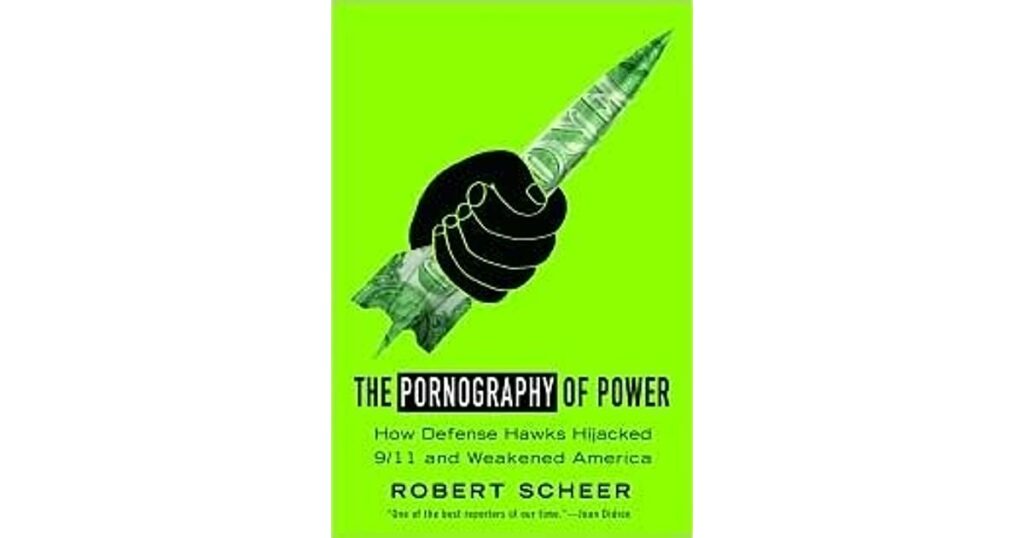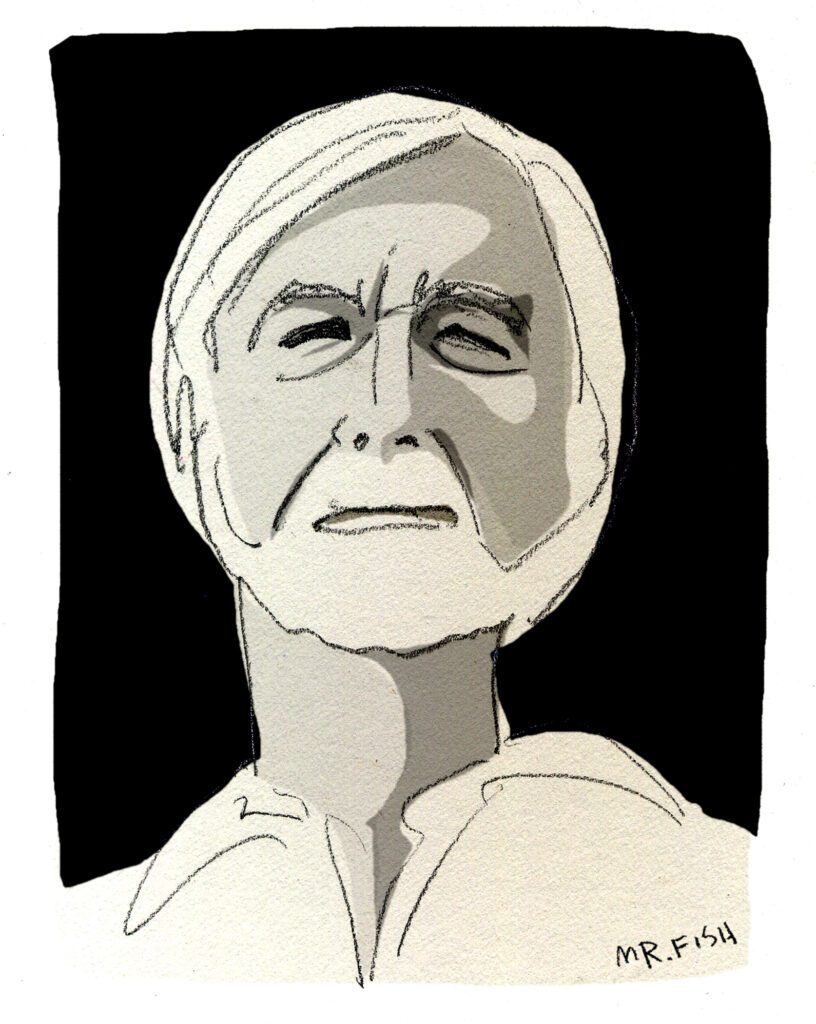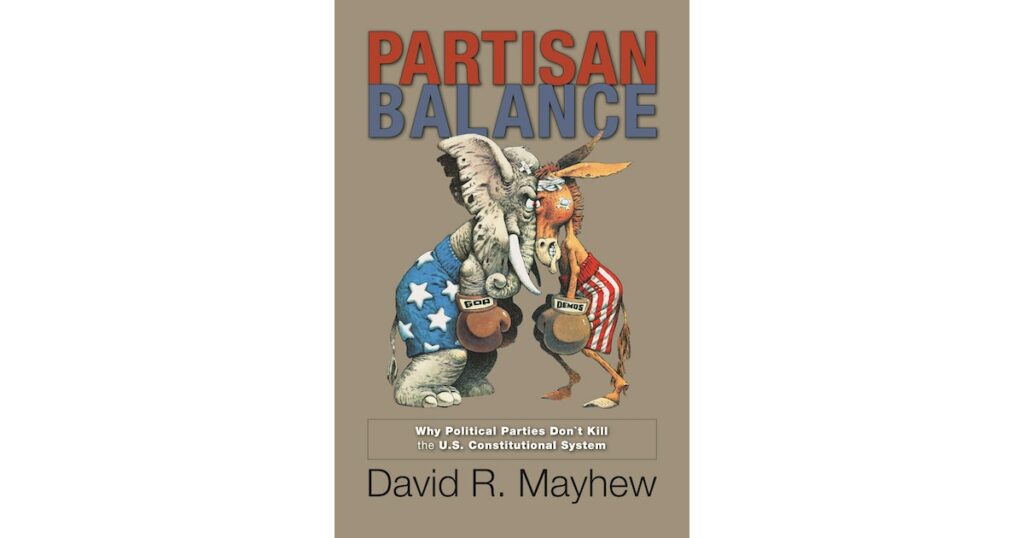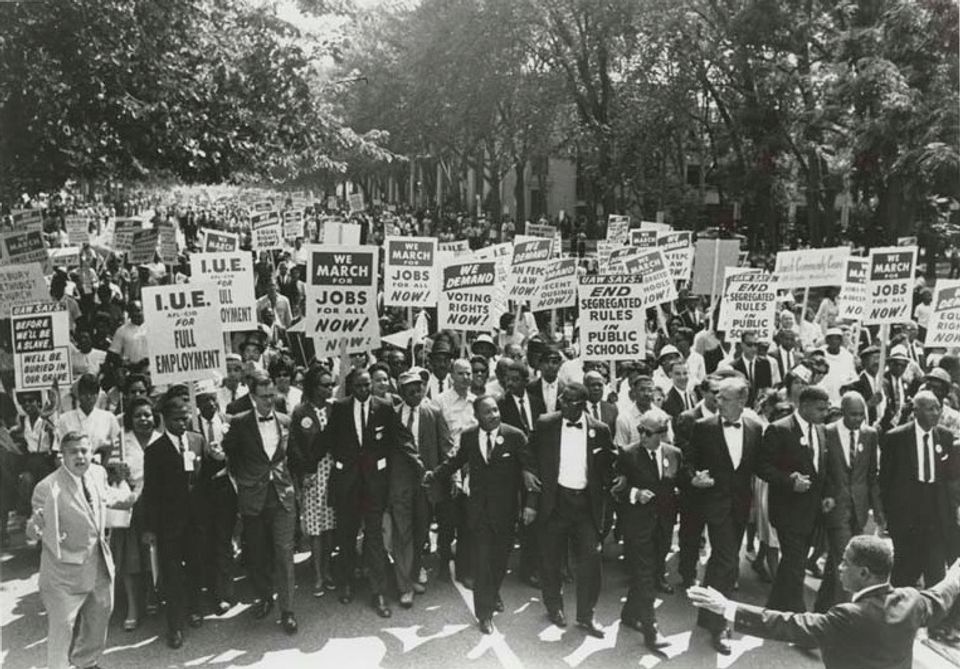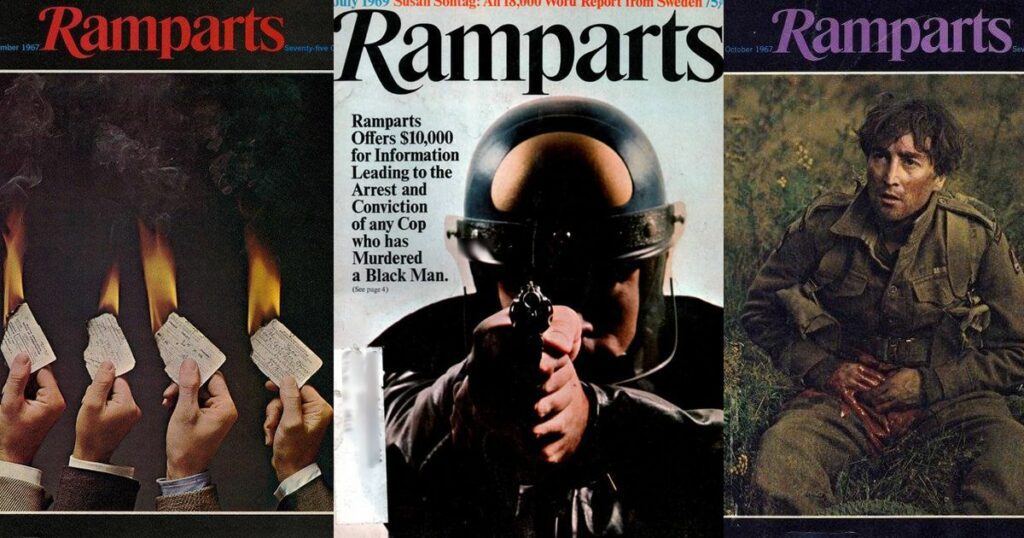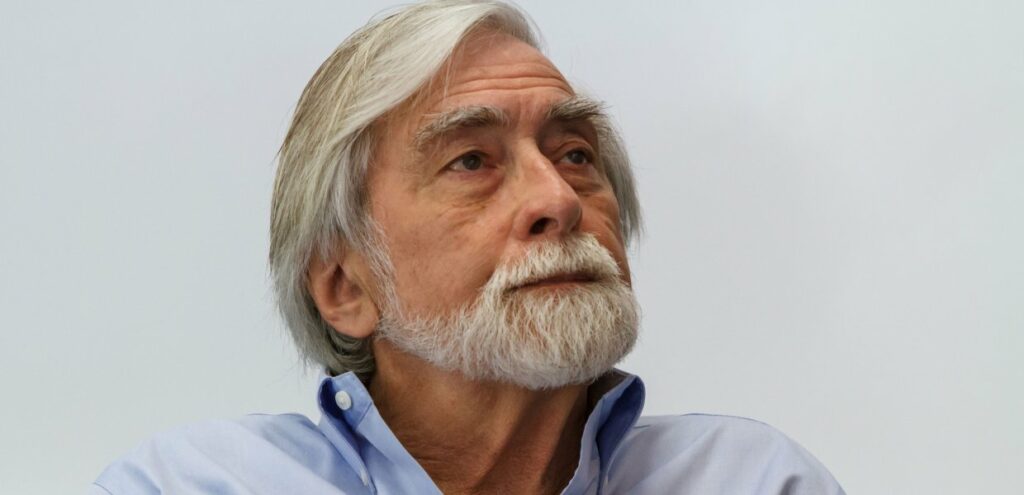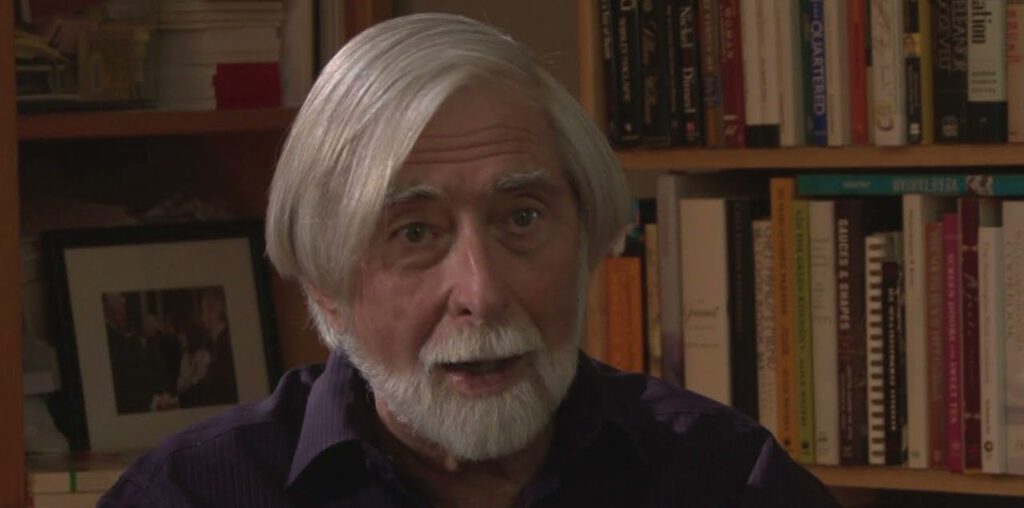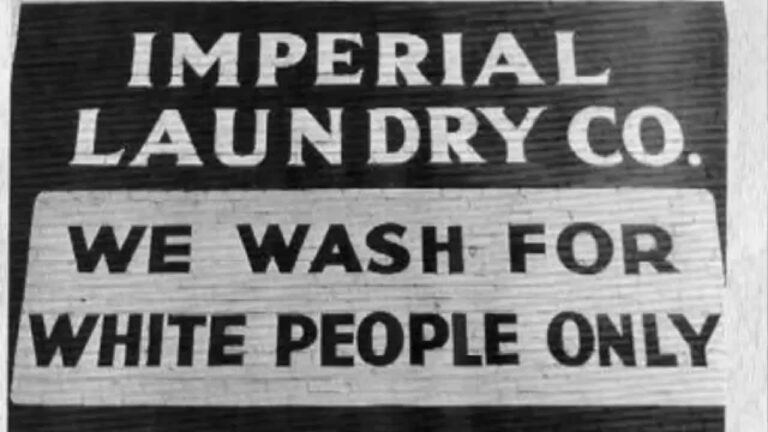This is an episode of Reality Asserts Itself, produced on June 28, 2015.
On Reality Asserts Itself, Mr. Scheer and Paul Jay discuss American partisan politics – is there a real difference and the demonization of the other camp?
PAUL JAY, SENIOR EDITOR, TRNN: Welcome back to Reality Asserts Itself on The Real News Network. We’re continuing our discussion with Bob Scheer. Bob is a veteran U.S. journalist, currently the editor-in-chief of the Webby Award-winning online magazine Truthdig. And his whole biography you’ll find beneath the video player. We’re just going to pick up where we were. Certainly Ronald Reagan’s presidency ushered in this new phase of what people call neoliberalism and such, but it was Bill Clinton–and you just mentioned–really helped regulate or deregulate and create much of the bubble. And you can see it all happening again. When Bill was elected, it was very Obama-esque. You know, it was a change that people could believe in. Now the whole same kind of sections of the elite are now all ready to inaugurate Hillary.
SCHEER: Yeah. Well, one of the problems that I find with my friends, people I like to have dinner with and have known, is that it’s very easy for them to demonize what they consider to be the far greater evil of the other side. And I’m sure it comes back the same way. If you’re a fairly reasonable Republican, you think, wow, these Democrats, they’re going to bring about communism and they’re going to destroy individual freedom, and they’re just horrible, which is not, of course, true. It had never been true and it’s garbage. They’re just like you, and they’ve gone to the same schools, and they have very similar thoughts, and they can be bought off in the same way. And so Democrats do the same thing about the Republicans. We’re getting that a lot now. The Koch brothers are the most evil thing, and anybody who is a Republican, they’ll destroy everything decent. They’ll destroy Social Security and Medicare and they’ll impoverish you. Well, you know, and it’s just not true either way. It’s a game, okay? Because fact is, no one’s going to destroy Social Security. Social Security is a very good way of keeping the lid on mass discontent. Before we had solid Medicare, Social Security, people getting older were a burden on all these families. They were–it’s a crisis. We’ve know institutionalized that concern, okay? That frees up younger people. Everybody knows that. You try to move against that, you’re moving against the most successful social program we’ve had. And same thing is going to happen with Obamacare. It’s being accepted. It’s institutionalized. The Republicans get in, they’ll try to make some noise about it, but basically most of it works. It’s not radical.
JAY: Well, big pharma and big insurance are not against it. They’re making money out of it.
SCHEER: Yeah, before, it was designed for their benefit, and it’s nowhere near as progressive as, say, what you have in most of the rest of the industrialized world. So it’s a game that they’re playing–oh, this one wants to destroy–and no one’s going to make abortion illegal and no one’s going to reverse the progress we’ve made–and it’s real progress–on gay rights.
JAY: But do you not think–.
SCHEER: But they terrorize people with that. And what’s lost in this game of terrorizing people–and Ralph Nader understands this as well as anyone. And if you want to ever ask me what I did wrong in life, one of the stupid things I did was have a debate with Ralph Nader on a Nation magazine cruise in which I was celebrating Obama and this new progress. I drank the Kool-Aid. And Ralph Nader was saying, nonsense; they’re going to give you the same old crap is the other guys do, ’cause they own both parties. And he was right and I was wrong. You know, here, you have it. And the reason is this whole theatrics of saying, oh, everything’s on the table and they come in–you even said it before when we were in your office: oh, you think Hillary’s going to be bad; if they come–. No they’re not, because the Band-Aids will stay in place. They’re not going to destroy Social Security. Okay?
JAY: Yeah, but hang on. Do you not think on a few critical foreign-policy issues–and as critical as we’ve been of the Obama administration–and we never drank the Kool-Aid at Real News. We were doing critical things right from the very beginning, from the first days of Obama’s entering the primaries. But I said even back then, in ’07, ’08, I said, but I’ve only got one hope for Obama, that he’ll be more rational on Iran. And I think so far he has been. I think it represents a whole section of the professional foreign-policy elite. But George Bush, when he invaded Iraq, went against the consensus of the foreign-policy professionals, even against really what most of the Pentagon believed. I would say the same thing–no, let me finish–that you could see the same thing, for example, if you start getting–if you have a Jeb Bush presidency and a John Bolton secretary of state, you could see military adventures that you might not see. And this is nothing–frankly, with Hillary I’m not so sure there’s a difference, ’cause I think Hillary is so closely allied to AIPAC and her foreign-policy positions are actually quite radical back when she was a senator. I’m not so sure about the difference between Hillary and Jeb Bush. But sometimes there’s a difference on some issues, and those issues are of some significance.
SCHEER: You know, I don’t know where to begin, okay, because I understand how seductive that argument is and I have accepted that argument much of my life. I’m not going to be a hypocrite here. If anybody wants to go back and look at my–I ran as a Democrat for Congress and against a guy who was, I didn’t think, as good as he should have been, but I assumed we were better than the Republicans. And all my life I’ve voted for–I voted for Dianne Feinstein. I think she’s been a horror. You know, I voted for Clinton. I went to a White House dinner at Bill Clinton’s invitation, and Hillary Clinton said I was her favorite correspondent–or favorite columnist in the world. You know, I wrote nice things about the Clintons, as well as critical things. And I understand how seductive this argument is that those Republicans are really bad, dangerous people, and on the other hand, folks that we hang around with or support, they may not be the greatest, but at least they’re sane.
JAY: I’m not making that argument.
SCHEER: Oh. I thought you were.
JAY: No. Listen.
SCHEER: You’re hitting me with Bolton, who, you know, is a, like, sort of comic figure. He’s not going to run anything. Let me just say, if we look at what happened during the last 50 years, these crazy Republicans, the ones that were described as crazy and extreme–Richard Nixon–actually ended up having a foreign policy that was no worse than the Democrats and in certain ways better. Richard Nixon did not start the war in Vietnam and did not provide the main escalation, which was the bombing of North Vietnam and carpet bombing, Agent Orange, killing all these people. It’s true, he expanded it to Cambodia.
JAY: The Democratic Party’s been led by war criminals much of its time, as has the Republicans. I’m saying that they represent different interests, not that they’re more moral, more reasonable. Like, even you go back to your tech sector argument, the tech sector is more allied with this section of the Democratic Party. There’s other sections of the consumer-based industry that don’t–like, war is not good for the whole economy. It’s not good for the whole elite.
SCHEER: It’s not good for anybody.
JAY: Well, it’s good for some people who make some short-term money.
SCHEER: I don’t believe it’s good. Not in the long run. You can’t develop a sane, stable society on the basis of meddling everywhere in the world and picking enemies everywhere.
JAY: That is of course true, but we’re not–I’m not suggesting these people are sane.
SCHEER: But let me just say, because people watching this, they’re going to say, are these two guys just jabbering at each other? And my feeling is we don’t have a disagreement. We’re both in kind of a position of weakness where we’re looking at what are some signs of progress. Right? What would be–what’s the lesser evil? As Jerry Brown–my wife just wrote a book on California. She loves quoting Jerry Brown when he was talking about Bob Dole running against Bill Clinton. He says it’s “the evil of two lessers”. You know. What are we talking about? I could challenge you point by point, but it’s an unsatisfactory discussion, because why should we be debating such dreary choices? And that is, in fact you can count on all these people to do the wrong thing or the right thing depending upon how much public pressure there is, okay, and how much of a movement there is. How did the public see it? When Nixon came into the presidency, he thought–he knew the public was unhappy with the Democrats, was unhappy with the war policy. I’ve–actually, believe it or not, I wrote about this and I got to talk to Nixon in 1985 after he’d been president. He actually sent me a letter saying he agreed with my analysis, and then I went to talk to him about it. And Nixon, being a politician above everything else–that’s what we forget, being a careerist, which is what all of these people really are. You know, they’re politicians. And Nixon saw that the Democrats’ war policy was not working. The American public had turned against it. And so Nixon came in with a thing, all right, I’ll finish this Vietnam, ’cause we can’t just cut and run, blah blah blah, although he ended up negotiating the basic peace to get out of Vietnam for all [incompr.] But he came in with the opening to China. You know. And he had supported detente with the old Soviet Union. And so Nixon actually came in and broke the mad dynamic of the Cold War. We can’t deny that. You know, this guy, who had blasted people, oh, you’re a pro-Chinese communist, you’re an agent of the enemy, when he was a congressman, you’re the worst thing, he comes in and he’s drinking mai tai with Mao Zedong. Mao Zedong! Could you ever think Richard Nixon would go over to China and after a career of blasting these Chinese Communists–this is the devil incarnate, right–that he would–and he, by the way, didn’t do it ’cause he ran into Kissinger. One reason I was able to endear myself to Richard Nixon, believe it or not, the reason he wrote me a nice letter inviting me to come talk to him was I was able to show that he embraced the idea of peace with China, communist China, negotiating a deal with communist China before he ever met Kissinger, that he was doing that because there was already a shift in thinking in the establishment, a recognition finally that there is a Sino-Soviet dispute, that not all communists get along–in fact, none of them get along–that we can do business with different ones. Right? We’re still dealing with Chinese communists right now, right? There aren’t any Russian–although you could argue they’re kind of a throwback. But Chinese communists–that’s pretty much our ally now and we’re dealing with them. We deal with the Vietnamese communists, right? Well, Nixon saw that. And so he changed tune. Let me go to George W. Bush. When George W. Bush got elected, first of all, his father, who I interviewed also and knew, H. Walker Bush, he knew the Cold War was over, and he was very devoted to cutting back arms and everything. You know. When his son gets in, he brings in some holdovers from the old Bush administration–Donald Rumsfeld and Dick Cheney, okay. And now we picture these guys as having blood dripping down and the dark side and everything. But in my book before The Great American Stickup, the one I wrote, The Pornography of Power, I begin with an opening scene, and it’s a scene you just cannot ignore if you want to take the position. You have to confront it. And this is two days before 9/11. He’s at the Pentagon. He’s giving a speech to the assembled workforce of the Pentagon.
JAY: Who’s he?
SCHEER: Donald Rumsfeld has become secretary of defense. He’s giving a speech. And I don’t have the words in front of me, but they are to the effect, there is a great enemy in this world, an enemy of decency and an enemy of the American people, an enemy of enlightenment, an enemy of rationality. This enemy is worldwide. This enemy is relentless. This enemy has a voracious appetite. This enemy threatens our resources. That enemy is not the old Soviet Union, which no longer exists. It’s not communist China, which is rapidly changing. That enemy is–Donald Rumsfeld telling the workforce in the Pentagon–that enemy is the Pentagon. Donald Rumsfeld. We have to cut military spending by a third. The Cold War is over. We’re being irrational. We have to invest more in our industry. We have such mismanagement here. We’re overlapping. We’re wasting–waste, waste, waste, waste. Okay? Two days later you get 9/11. You have irrationality, shock–oh, no one’s ever been attacked. Nonsense. How did this happen? Where is this all about?
JAY: But Donald Rumsfeld’s also a signatory to the Project for a New American Century that said reshape the world with American military might. He was for a different kind of military, not for pulling back the footprint.
SCHEER: What I’m talking about is: what is the core ideology of any of these people? The core ideology of any of them is opportunism. It’s their career, their advancement, their short-term gain, their sense of how they can move ahead. We do not have statesmen or stateswomen in the old-fashioned sense of people with a longer-run view.
JAY: Let me just clarify something that I was saying.
SCHEER: Yeah.
JAY: What I’m suggesting is people should not have any illusions about the Democratic Party or the Republican Party. They represent a class that represents a set of interests. And they’re out of solutions. In fact, I just recently did an editorial we published called “Not Fit to Rule”. I don’t think any of them are fit to rule. They’re out of solutions. People need to develop an independent politics. People have need to have to start thinking about how people are going to govern, not that class, but ordinary people. All that being said–and I’m sure you don’t disagree–but all that being said, it doesn’t mean there isn’t some difference between these two parties when it comes to issues of war. It doesn’t mean the Democratic Party isn’t more than ready to wage war. They are, and they have been. But we’re in a moment right now–just let me finish–Iran’s an example, a very good example. Perhaps Iraq was an example. Now, I’m not sure. I don’t know. It’s hard to say whether there would have been an invasion of Iraq if it hadn’t been a Bush presidency. It’s hard to say. Clinton certainly was very much for the overthrow of Saddam. There was a lot of militancy and support for the war in the Democratic Party. But, like, I don’t think we have to go so far as to say is there zero difference on some important issues without also saying none of these people are really fit to rule.
SCHEER: Yes. But the trap in your approach–go with me for a minute.
JAY: Sure.
SCHEER: Okay, ’cause I don’t think we have any big difference, and I don’t want to waste a lot of time on–I mean, we–except on this one point, ’cause I certainly agree with you. The American people have got to rise to the responsibility of citizenship and ask themselves, do I want to really build another carrier or do I want to engage in drone warfare, do I want to have cyber war that’s going to drive–do I want to do this surveillance state and spy on everybody in the world and make that a way of life? There are a lot of big questions about how we use our resources and how we are governed and elite and so forth. And that requires a movement that’s based on skepticism of those in power no matter which party. That’s the assumption of the American experiment. That’s the whole reason we have freedom of press, freedom of assembly, that they can’t invade our houses. That’s why we have the Bill of Rights, that’s why we have separation of powers, that’s why we have checks and balances, because we assume people are corrupted by power. It’s not something I invented. It’s something that our founders talked about, right? And they were talking about themselves. Okay, so that is a given. And the only way we can have a correction of this is by the ordinary people in the society figuring out, does this work for me, and what is at stake, and so forth. That process gets blocked, however. It gets blocked ’cause we’re no longer living in little villages, we no longer have just local government; we live in a mass society that has an empire, worldwide interests, inflames people worldwide, and so forth, which are founders warned us not to have. Okay. So I would argue the first thing that we have to do is have a movement that says let’s pull back, we shouldn’t be the saviors of the world, we are not the only country that can figure stuff out, we have to let others figure stuff out for themselves, for their neighbors, and so forth. If I were to have a program for progress, it would be the unassuming title of let’s be more of an ordinary nation. We’re not the indispensable actors in history. We don’t know everything. We’re not particularly smart about the whole world. We’re not particularly sensitive to the cultures of the world. And I would say the most progressive thing for the United States is let’s become a little bit more like Germany, if not Switzerland, okay, or let’s–.
JAY: I’ll go for Finland or Iceland. How about a little more like Iceland?
SCHEER: See the problem with Finland and Iceland is they clearly don’t have massive power to do things. Germany does. You know. But Germany is saying, we learned about Empire, we learned–.
JAY: Or maybe they’re saying let the Americans do it, ’cause we don’t have to as long as they are.
SCHEER: Well, that’s the argument of hawks that have always said, you know, they’re getting it on the cheap. I don’t see Germany that way. I don’t see much of the advanced–economically advanced world that way. I think they learned a really sobering lesson about the cost of foreign entanglements, which our founders warned us against, that when you decide you’re going to make the decisions about–now, you bring up today Saudi Arabia and its view of the Sunni Muslim religion or Iran and its view of the Shia, you have a prescription for disaster. You’re launching 100 year wars. You’re engaging in incredible fratricide here of other people. This is how we got into Afghanistan, all this stupidity of, you know, we’re going to decide what government they should have, we’re going to play games with the Russians here over who’s in power in Kabul and all that. So I would say the first thing you would want in the political process from anybody you might support or care about is that they have a sense of balance, not have to control everything, not have to intrude everywhere, not have to decide, not demonize the other people. And we get as much of that on the Republican side as we do on the Democrats–not perfectly. Yes, you can bring up your hawks, but you also have more isolationists or people who want to pull back. And as you point out, Hillary Clinton is more of a hawk than a conservative, but we have some Democrats who want to pull back. So the big split on that would be: are we the city on the hill, the indispensable? And the irony, by the way, is Reagan was actually less aggressive than other presidents, because at his heart he was more of a pullback kind of guy, isolationist, than go march off to fight. So that’s number one, okay? Where do they stand on that? Number two is: what is your notion of your home country? What is your obligation? What is the nation state? What is America? Okay? And I think there are two competing visions about that. One is we are the model for the world and everybody should live like us and we know what’s best for them and so forth. Another is we are only a model for the world if we take care of our own and we do it in a sane way that doesn’t mean ripping off everybody else, that we are rational, we have a good school system, we have good medicine, or we have some reasonable amount of income opportunity, equal opportunity, we don’t have homeless people all over the place, we don’t have racial divides, we don’t think black lives are expendable, we’re tolerant, and so forth. And if we have that kind of America, it will be a model for the world, as it has been at different times in our history when people respect us.
JAY: So how do we get to that?
SCHEER: Okay.
JAY: Okay. In the next segment we’re going to talk about that. So please join us for how do we get to that with Bob Scheer on Reality Asserts Itself on The Real News Network.
Never miss another story
Subscribe to theAnalysis.news – Newsletter
“Robert Scheer is an American left-wing journalist who has written for Ramparts, the Los Angeles Times, Playboy, Hustler Magazine, Truthdig, Scheerpost, and other publications, as well as having written many books.


